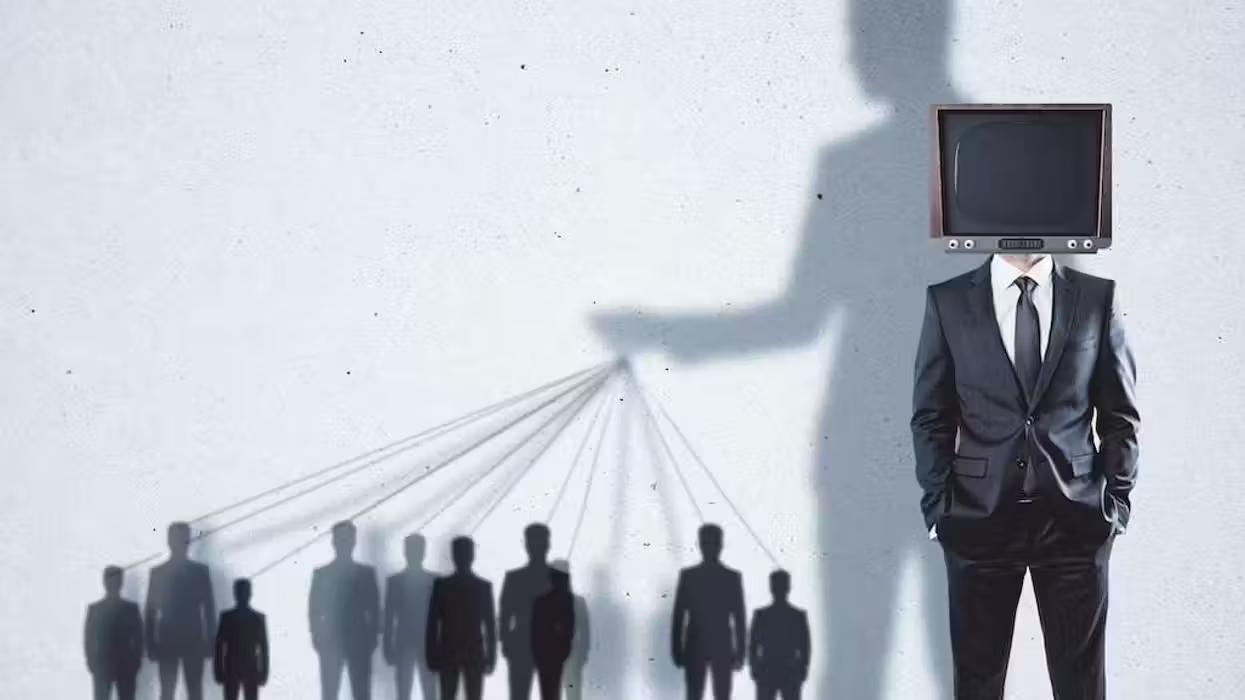
© 2025 Blaze Media LLC. All rights reserved.
NY Times Magazine Cover: 'If There Is a Third Intifada, We Want to Be The Ones Who Started It
March 19, 2013
"If Palestinians believed they could live better by playing along, who would bother to fight?"
Ahead of President Obama's visit to Israel, New York Times columnist Ben Ehrenreich has introduced readers to the Palestinian settlement of Nabi Saleh, whose some 500 residents are fairly united in their resistance against Israel. They also mostly share the same last name from being either related by either blood or marriage. The people of Nabi Saleh, who are allegedly subjected to consistent injustices perpetrated against them by their occupiers, the Israelis, stated that if there is going to be a third intifada, they "want to be the ones who started it."
Ehrenreich paints a sympathetic picture of Nabi Saleh and describes its residents in effusive, flowery terms. He lionizes Palestinian martyrs' perceived nobility and lays the groundwork for Nabi Saleh's "third intifada" against Israel, writing:
That elite lives comfortably within the so-called “Ramallah bubble”: the bright and relatively carefree world of cafes, NGO salaries and imported goods that characterize life in the West Bank’s provisional capital. During the day, the clothing shops and fast-food franchises are filled. New high-rises are going up everywhere. “I didn’t lose my sister and my cousin and part of my life,” Bassem said, “for the sons of the ministers” to drive expensive cars.Worse than any corruption, though, was the apparent normalcy. Settlements are visible on the neighboring hilltops, but there are no checkpoints inside Ramallah. The I.D.F. only occasionally enters the city, and usually only at night. Few Palestinians still work inside Israel, and not many can scrape a living from the fields. For the thousands of waiters, clerks, engineers, warehouse workers, mechanics and bureaucrats who spend their days in the city and return to their villages every evening, Ramallah — which has a full-time population of less than 100,000 — holds out the possibility of forgetting the occupation and pursuing a career, saving up for a car, sending the children to college.
In yet another excerpt of the 10-electronic-page long article, Ehrenreich explains how just about everyone he spoke with in the settlement who was old enough to remember, all maintain that "conditions for Palestinians are far worse now than they were before the first intifada."
"The checkpoints, the raids, the permit system, add up to more daily humiliation than Palestinians have ever faced. The number of Israeli settlers living in the West Bank has more than tripled since the Oslo Accords. Assaults on Palestinians by settlers are so common that they rarely made the news."
To resolve this allegedly "far worse scenario," activists from Nabi Saleh have banded together to form "what is known as the 'popular resistance,' a loosely coordinated effort that has maintained what has arguably been the only form of active and organized resistance to the Israeli presence in the West Bank since the end of the second intifada in 2005."
One of the residents claimed that their goal is to demonstrate peacefully, without taking up arms in the hope of becoming a model of resistance for the entire West Bank. He followed it up by saying: “If there is a third intifada,” he said, “we want to be the ones who started it.”
Yet the NY Times author also writes of other activists who have engaged in physical clashes with Israeli military and has painted an image of life for residents of Nabi Saleh as increasingly desperate:
"But the checkpoints, the settlements and the soldiers are waiting just outside town, and the illusion of normalcy made Nabi Saleh’s task more difficult," Ehrenreich writes.
"If Palestinians believed they could live better by playing along, who would bother to fight?"
[Bold emphasis added by TheBlaze]
Want to leave a tip?
We answer to you. Help keep our content free of advertisers and big tech censorship by leaving a tip today.
Want to join the conversation?
Already a subscriber?
more stories
Sign up for the Blaze newsletter
By signing up, you agree to our Privacy Policy and Terms of Use, and agree to receive content that may sometimes include advertisements. You may opt out at any time.
Related Content
© 2025 Blaze Media LLC. All rights reserved.
Get the stories that matter most delivered directly to your inbox.
By signing up, you agree to our Privacy Policy and Terms of Use, and agree to receive content that may sometimes include advertisements. You may opt out at any time.







